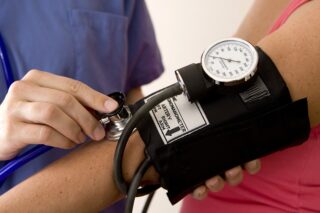
For decades, scientists have been studying the link between dementia and atrial fibrillation (AFib). The mounting body of research shows that AFib is linked to an increased risk for dementia, even among patients who have never had a stroke. But the good news is a preventive cure is on the horizon. Learn more below.
So, Does AFib Potentially Cause Dementia?
Short answer: Yes, AFib is a risk factor for dementia. The longer answer is yes, many studies correlate AFib with dementia, but cannot prove AFib causes dementia. In 2019, the largest study to investigate the link was published in the European Heart Journal. Researchers followed more than 262,000 people aged 60 and over for almost ten years. They found that people who developed atrial fibrillation had a 50 percent increased risk of developing dementia compared to those without AFib. This is significant, as the increased risk remained even after those who had suffered a stroke were removed from the calculations. In total, 24.4 percent of patients who developed AFib also developed dementia, compared to only 14.4 percent of patients without dementia.
But Why Could AFib Cause Dementia?
In AFib, the heart’s chambers, or atria, beat at an irregular rhythm. This causes problems, because the atria must pump blood out to the heart’s ventricles and the rest of the body. If the atria beat too fast, not enough blood can be pumped through before the valves shut again. If the atria beat too slowly, this can allow blood to pool inside the heart and form clots. These clots can then travel through the bloodstream and reach the brain. If the clots get stuck there, it causes a stroke.
Strokes damage the brain by choking off the blood supply. Without regular blood flow, brain cells cannot receive vital resources like oxygen they need to survive. The longer the brain goes without oxygen, the more cells die and the more precarious it becomes for the patient. Some strokes are unnoticeable immediately, during and after they happen. These strokes only damage certain portions of the brain rather than the whole structure. This is why the strokes go undetected and unreported. However, later brain-function tests and scans can detect the deterioration of the brain. Compromised parts could be related to memory storage or other related neural functions, hence the memory decline and dementia.
How Do We Cure Dementia?
There are many different factors that can cause memory loss and dementia. When preventing potential dementia caused by AFib, we have to look at how we can prevent AFib itself and stroke. Blood thinners may provide significant help here.
The study concluded that AFib patients reduced their risk of dementia by 40 percent when they took blood thinners, or oral anticoagulants such as warfarin, to prevent blood clots. The researchers suggested that non-vitamin K anticoagulants, which have a lower risk of cerebral haemorrhage, may be even more effective. They believe aggressive rhythm control, such as catheter ablation, may also help to prevent dementia, but further research is needed.
Overall, preventing AFib will not only help patients prevent dementia, it will also help them prevent risk of stroke and other cardiac disease. If you have AFib, work with your doctor to determine if oral anticoagulants or another treatment may be right for you. There are also lifestyle factors you can control from home if you’re having an episode.
Do you have any questions or concerns? Schedule an appointment and talk to our doctors at Heart Rhythm Consultants today. Our team of experienced EP doctors are always happy to help address concerns regarding your health.



